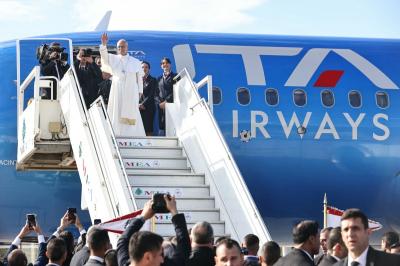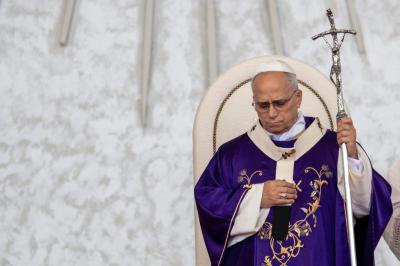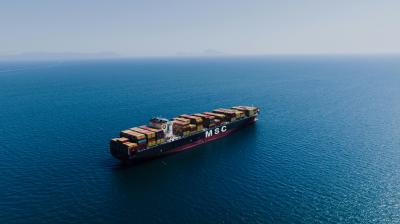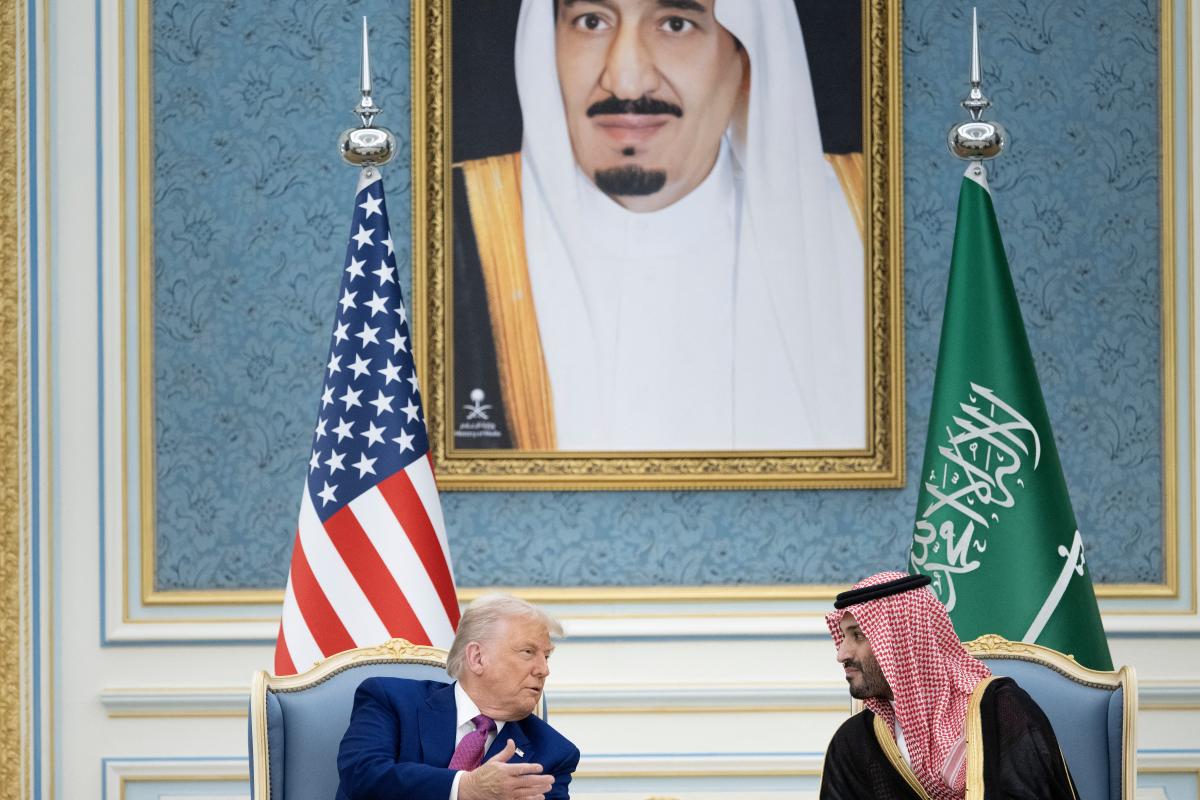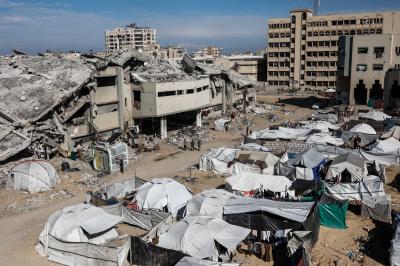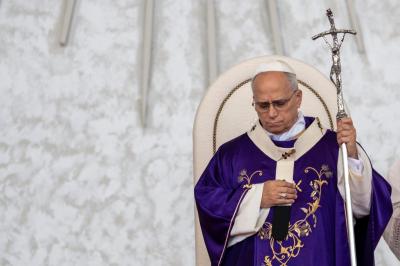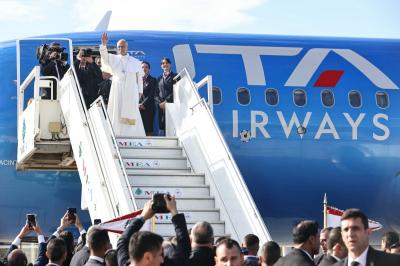Signs are emerging of a new phase in U.S.–Saudi relations, unfolding amid what some are calling the birth of a “new Middle East” — an era after the region’s great wars. The transition will not be easy and will pass through complications, but its starting point lies in the end of the Gaza war, as it had been fought until recently. Along this path, Riyadh and Washington are preparing for a qualitative leap, strengthened by the close personal ties between U.S. President Donald Trump and Saudi Crown Prince Mohammed bin Salman.
Trump has often framed diplomacy in personal terms, a reflection of his pragmatic, action-oriented style that favors speed over bureaucracy and prefers dealings with “strong men with popular backing.” Months ago in Riyadh, he described Bin Salman in exactly these terms, underlining his comfort with the crown prince’s “Saudi Arabia First” ambition. Rather than finding it threatening, Trump sees it as reassuring — encouraging him to provide military protection, regional support, and even political concessions. In Syria, for example, Trump lifted sanctions on Damascus and its president, Ahmad al-Sharaa, a former “terrorist,” who received a warm welcome in Riyadh.
Trump has not pressured Bin Salman to rush into normalization with Israel or join the “Abraham Accords,” though he has acknowledged that such normalization remains one of his key goals. Instead, he has allowed the Saudis to move at their own pace. He has also been careful to respect Saudi sensitivities on the Palestinian issue, even as he backs Bin Salman’s ambitious Vision 2030 plan, which includes massive investments in logistics, transport, renewable and nuclear energy, mining, tourism, and real estate.
This understanding is rooted in Saudi Arabia’s importance to the United States — as a major investor in the U.S. economy, one of the largest buyers of American weapons and technology, and a decisive player in stabilizing oil prices. Riyadh’s role is especially critical for Washington’s global rivals, including China, which relies heavily on Saudi oil. In return, the Saudis seek U.S. protection as they push to make their kingdom the Middle East’s economic hub.
Yet security remains the Saudis’ primary concern. With the Gulf still reeling from Israel’s recent strike on Qatar, Riyadh and Washington are advancing talks that could lead to a joint defense pact. The Saudis hope to finalize such an agreement when Bin Salman visits the White House next month for the first time since 2018. Officials in Riyadh expect the deal to be “important” and “solid,” covering military, intelligence, defense, and security cooperation.
Trump’s Flexibility, Biden’s Rigidity
Saudi Arabia’s anxieties extend beyond its borders, with issues such as terrorism never far from view. Recently, Riyadh entered into a strategic pact with nuclear-armed Pakistan — a clear signal to Washington that the kingdom is willing to diversify its alliances if needed.
The Saudis had sought a U.S. defense agreement during the presidency of Joe Biden, but negotiations faltered over Washington’s insistence on normalization with Israel, something Riyadh refused without the creation of an independent Palestinian state based on the 2002 Arab Peace Initiative. Trump, by contrast, appears more flexible. He is ready to pursue a defense pact through either a formal treaty or an executive order, leaving the Israeli question for later.
In May, Riyadh sent a powerful signal of goodwill by signing a $142 billion arms deal with Washington — twice the size of its 2024 defense budget. The White House hailed it as the largest defense agreement in history. Today, Saudi Arabia’s shopping list includes F-35 fighter jets, drones, missile defense systems, and enhanced maritime and border security, all tied to its military ambitions and fears.
This builds on Trump’s more accommodating stance, a contrast to Biden’s era, when the idea of a NATO-style treaty was floated. Such an agreement — like those with Japan and South Korea — would have bound the United States to treat an attack on Saudi Arabia as an attack on itself. If Trump designates Saudi Arabia a “major non-NATO ally,” it would further ease arms sales by cutting through bureaucracy.
Washington already views Riyadh as strategically more important than its Gulf neighbors, with a larger military, diversified assets, wider diplomatic reach, and long-term stability. Saudi Arabia is expected to play a decisive role in upcoming regional challenges.
A Green Light for a Larger Saudi Role
Regionally, Washington appears ready to facilitate a greater Saudi role that could serve as a cornerstone of the peace Trump wants to put his name on. Riyadh, for its part, has recently diverged from Washington’s stance, condemning Israel’s actions in Gaza as genocide, calling for a ceasefire, and working with France to expand international recognition of Palestine, which now enjoys support from 147 out of 193 UN member states.
On Iran, both Washington and Riyadh appear to rule out war. Saudi Arabia has kept a pragmatic truce with Tehran, underpinned by a Chinese-brokered agreement signed two years ago, which still holds. Riyadh also condemned Israel’s recent attacks on Iran.
Looking north, Saudi Arabia is eyeing Syria, where it competes with Turkey’s Muslim Brotherhood-linked influence. Riyadh is deepening its engagement there, seeking to extend its sway in a country where Sunni–Shia rapprochement crosses borders from Damascus to Tehran. Washington is watching closely but not intervening, so long as it remains the key driver of regional events. For Riyadh, a strategically strong and stable Syria — one that avoids expansionist adventures — would reinforce both Saudi and regional security.
In short, Washington appears to have given Riyadh a green light for a larger role in the region. Saudi Arabia, in turn, is striving for U.S. security guarantees, strategic and economic partnerships, and regional stability that go beyond the personal rapport between Trump and Bin Salman. It is a new vision shaped by sweeping changes still to come.
Please post your comments on:
[email protected]
 Politics
Politics
